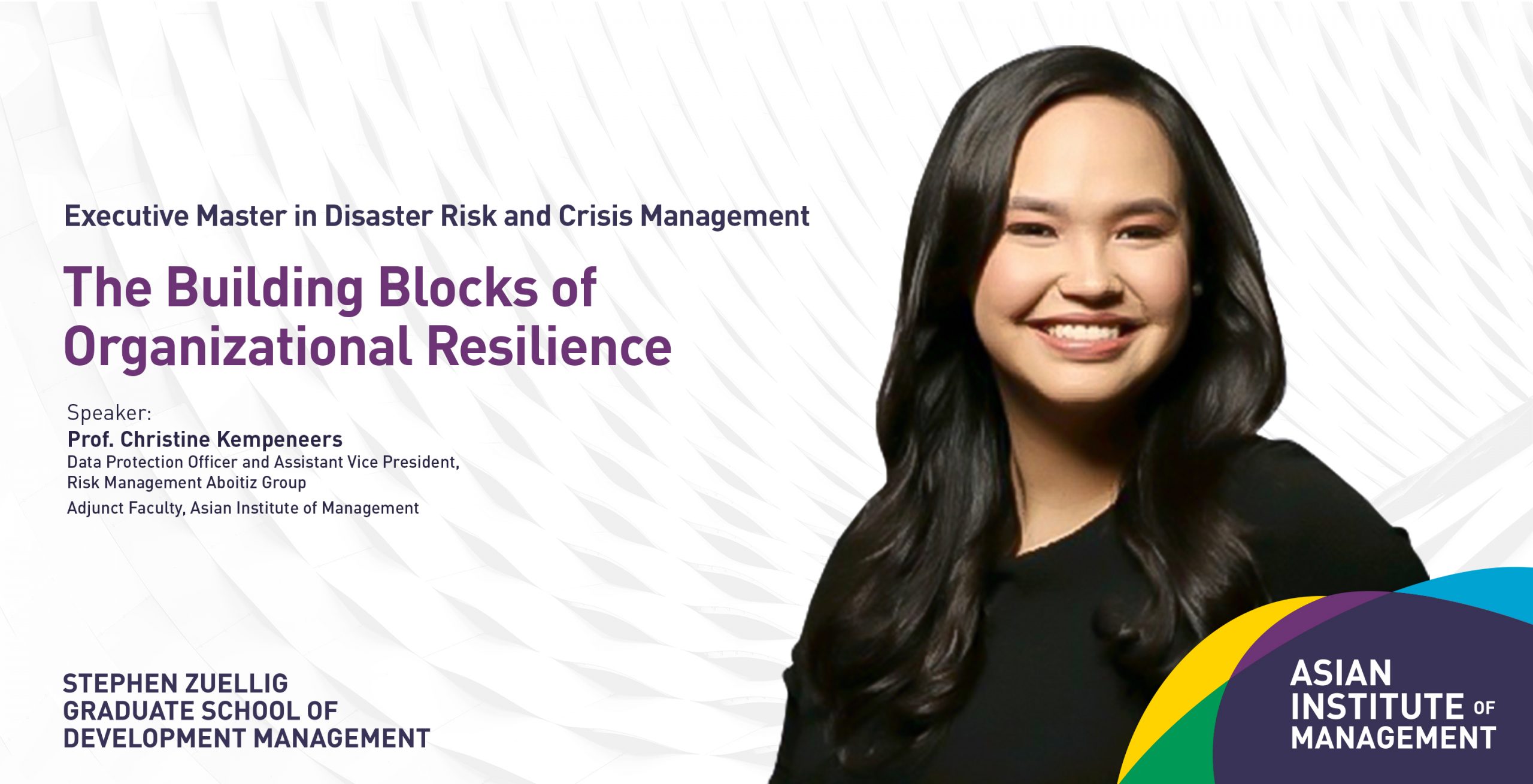There is no telling when disaster will strike. These disruptions could creep up slowly or happen instantly without any warning. Without having a plan in place, any organization and its operations will collapse. Being able to respond and adapt to the everchanging times is an asset for organizations these days.
To further explain how organizations could be more resilient, The Asian Institute of Management’s Zuellig School of Development Management held a successful trial class last April 21, 2022, entitled “The Building Blocks of Organizational Resilience”. Led by Professor Christine Kempeneers, the trial class gave participants a glimpse of what is being taught at the Executive Master in Disaster Risk and Crisis Management Program. Throughout the discussion, Professor Kempeneers highlighted the importance for organizational resilience.
According to Professor Kempeneers, having a resilience plan is a must for any organization. These plans give organizations the ability to prepare for, anticipate, and respond to any crisis that it is either willing to tolerate or accept. Furthermore, Professor Kempeneers stressed that it is key for organizations to be able to sustain and safeguard its operations and services or products, whether there is a disruption, or it is just another normal business day. To give a better understanding on the main foundations of organizational resilience, Professor Kempeneers broke it down into three topics.
Know your “whys?”
For organizations to effectively create a resilience plan, it is important that the organization knows its “whys?”. These “whys” include the people that are involved in the organization, the processes in which the organization operates, and the services or products that the organization is offering. Knowing these will be able to help organizations prioritize, strategize, and create plans which prevent bad things from happening and making sure good things happen within the organization.
Risk Management
Every organization, no matter how perfect it may seem, has its own set of problems. What is important is figuring out what problems the organization can tolerate and is willing to accept. Knowing which problems your organization is willing to tolerate or accept will help in determining the course of action to take in order to avoid, accept, reduce, or transfer these problems. Additionally, having the organizations “whys” in mind will help determine which processes will be put in place to evaluate crises, treat them, and monitor the operations before, during, and after a crisis.
Business continuity
As previously mentioned, it is imperative that organizations have the capability to sustain its operation whether it’s business as usual or during a crisis. Organizations need to figure out where they are the most vulnerable and put process in place to address these vulnerabilities. It is important as well that organizations plan and allocate resources ahead of time and train those involved in executing the plan so that everything runs smoothly when disaster strikes. Organization must also have plans in place when it comes to incident management, data and security management, and technology, information, and business recovery. All of these will help in aiding the operations of an organization to continue as soon as possible, even during a crisis.
While organizational resilience is not a new topic, given how times have changed, especially in the past two years, many participants wanted to get more insight on the topic. Through the Executive Masters in Disaster Risk and Crisis Management program, students will have the opportunity to take classes like this and understand different facets of disaster risk and crisis management. Given the successful turnout and participation during the event, this poses a great possibility for more trial classes like this in the future.
To stay up to date about our future trial classes and the Executive Masters Disaster Risk and Crisis Management Program, you may visit our website devatwork.aim.edu or you may send an email to emdrcm@aim.edu






